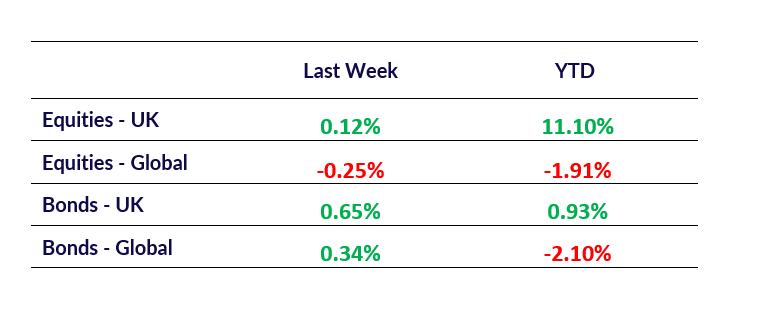The infoshot to help kick-start your week
Reeves delivers Spending Review
The chancellor, Rachel Reeves, said overall government department spending will increase by 2.3% a year in real terms.
Health is arguably the biggest winner of this Spending Review. The department will receive almost £30bn extra a year towards it budget. £10bn of that has been earmarked for technology and digital transformation. The effective 3% rise is much lower than the funding increases during the last time Labour were in power and there are question marks over whether it’s enough to tackle backlogs and cover pay rises for doctors and nurses. Housing and local government will receive £39bn over the next decade to help reach its target of building 1.5m new homes by the end of the parliament. That’s a big jump from the £2.3bn a year provided by the last government.
As expected, the defence department received a big rise in its budget. £11bn extra has been set aside for defence and £600m for security services. This has been largely funded by cuts to international aid. This will help get defence spending up to 2.6% of GDP by 2027 but this remains a long way off the 3.5% rise by the mid-2030s that the UK is expected to agree to at the next Nato summit. Conversely, the Foreign Office was the biggest loser of the day, suffering a cut of almost 7% due to the cuts to overseas aid.
Just prior to the Review, ONS data released last week showed that UK firms are not hiring or replacing workers who leave, sending the number of available jobs down by 63,000. The UK unemployment rate is now at 4.6%, it’s highest in almost four years.
US-China rare earth “deal” “done”
On Wednesday, Trump said a trade “deal” with China has been agreed. China will supply US companies with magnets and rare earth metals. In return the US won’t carry out it’s threats of revoking the visas of Chinese students.
Details of the “deal” are vague, and it doesn’t eliminate the new tariffs announced since Trump launched his trade war. According to Trump that means the US will get a total 55% tariff from China, while China will charge 10% on American goods. The deal is still subject to final approval from Trump and President Xi.
Oil surges following Israel’s strikes on Iran
The price of Brent Crude oil surged to over $78 a barrel following Israel’s attacks on Iranian nuclear sites on Friday. It has fallen back down to nearer $70 since, but is still up nearly 7% compared to last month. Share prices fell across Asia and Europe, and in the US the S&P closed down -0.69%. Gold hit its highest level for nearly two months as investors sought safe haven assets, rising to $3,418 per ounce.
A prolonged conflict between Israel and Iran is likely to have a significant impact on the global economy. Oil reached $100 a barrel shortly after Russia invaded Ukraine in February 2022, if it reaches this level again it will have a knock-on effect on supply chains and inflation. This will also make it harder for central banks to bring down interest rates.

Coming Up:
- BoJ Interest Rate decision, Tuesday 17 June 2025 at 04:00am
- FOMC Statement, Wednesday 18 June 2025 at 19:00pm
- BoE Interest Rate decision, Thursday 19 June 2025 at 12:00pm
Notice:
For regulated financial advisers and investment professionals only, Copia does not provide financial advice, and the contents of this document should not be taken as such. The performance of each asset class is represented by certain Exchange Traded Funds available to UK investors and expressed in GBP terms selected by Copia Capital Management to represent that asset class, as reported at previous Thursday 4:30pm UK close. Reference to a particular asset class does not represent a recommendation to seek exposure to that asset class. This information is included for comparison purposes for the period stated but is not an indicator of potential maximum loss for other periods or in the future.



